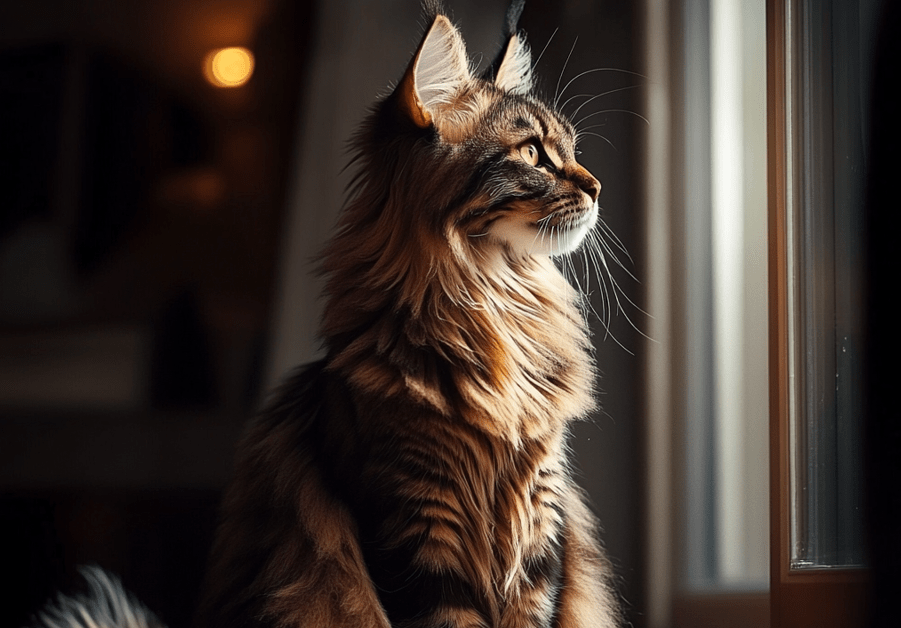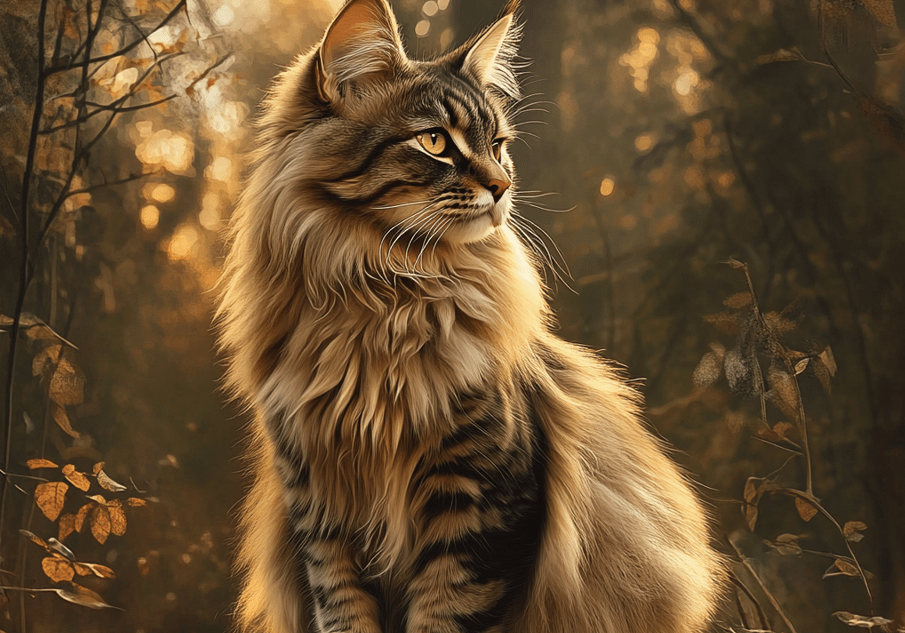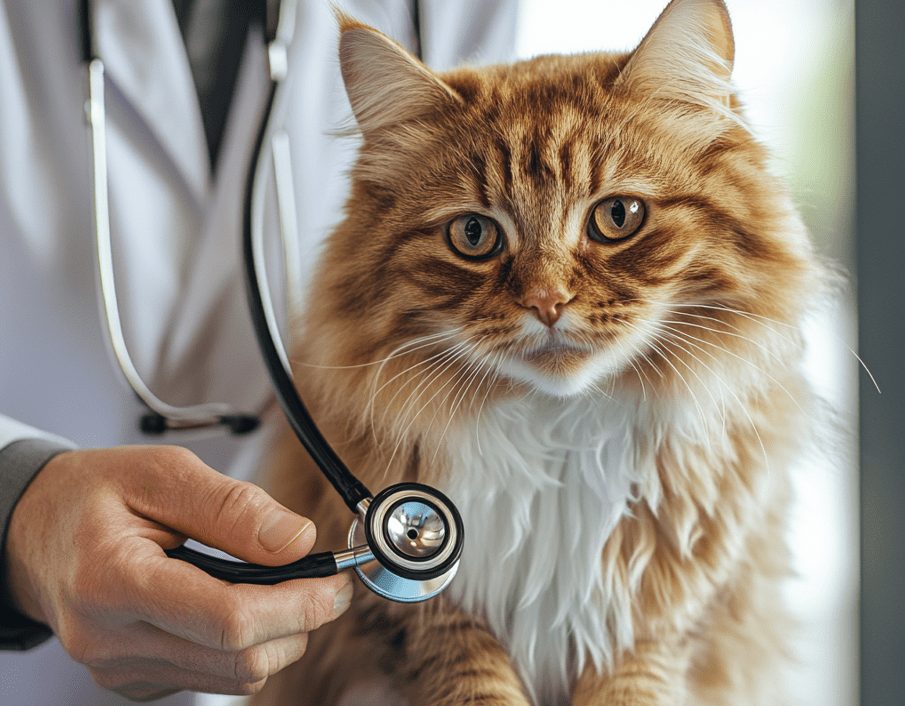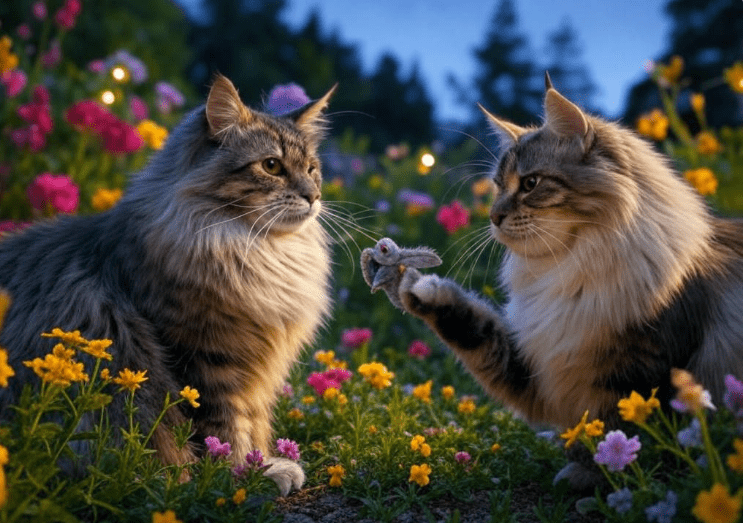
Maine Coon behavior changes can be a source of concern for owners of this beloved, gentle giant breed. Known for their friendly, dog-like personalities and sociable nature, Maine Coons are typically predictable in their habits. However, when your Maine Coon starts acting differently—whether it’s increased vocalization, aggression, or withdrawal—it’s natural to wonder what’s behind these shifts. This comprehensive guide explores the causes, signs, and solutions for Maine Coon behavior changes, helping you understand your cat’s needs and ensure their well-being.
Why Maine Coon Behavior Changes Matter
Maine Coons are cherished for their affectionate, playful, and intelligent personalities. When these traits shift unexpectedly, it can signal underlying issues ranging from environmental stressors to health problems. Recognizing and addressing behavior changes early can prevent discomfort, strengthen your bond with your cat, and improve their quality of life. This article covers everything you need to know about interpreting and managing these changes effectively.
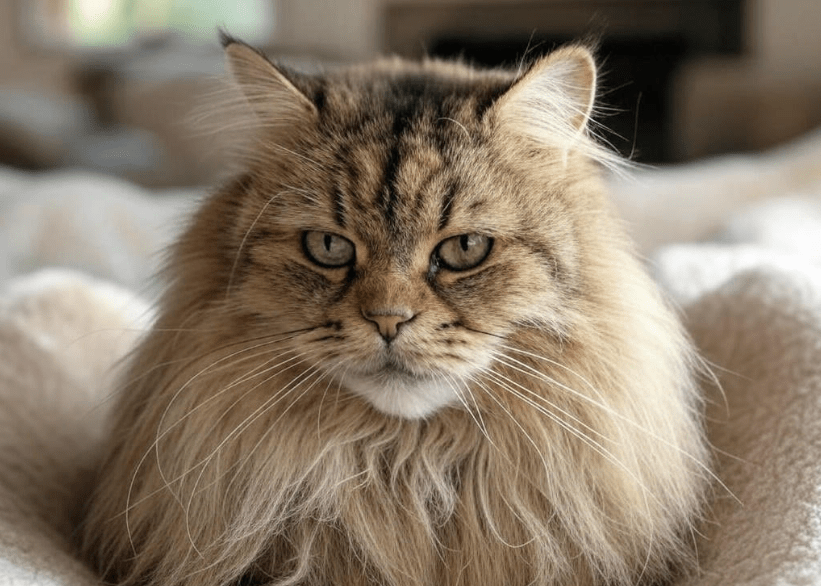
Common Maine Coon Behavior Changes
Maine Coon behavior changes manifest in various ways, depending on the root cause. Here are some of the most common signs to watch for:
Increased Vocalization: Excessive meowing, yowling, or chirping, especially at unusual times.
Aggression or Irritability: Hissing, swatting, or biting, particularly if unprovoked.
Lethargy or Withdrawal: Hiding, avoiding interaction, or sleeping more than usual.
Changes in Appetite: Eating less, refusing food, or overeating.
Litter Box Issues: Urinating or defecating outside the litter box or changes in frequency.
Excessive Grooming or Scratching: Over-grooming leading to bald spots or skin irritation.
Clinginess or Anxiety: Following you excessively or displaying signs of stress, like pacing.
If your Maine Coon exhibits any of these behaviors, it’s time to investigate the cause.
Potential Causes of Maine Coon Behavior Changes
Understanding why your Maine Coon’s behavior has changed is the first step to addressing it. Causes can be broadly categorized into health-related, environmental, and psychological factors.
1. Health-Related Causes
Maine Coons, despite their robust appearance, are prone to certain medical conditions that can alter behavior. Always rule out health issues first, as they often require prompt veterinary attention.
Pain or Discomfort: Conditions like arthritis, dental disease, or urinary tract infections can cause irritability, lethargy, or litter box avoidance. Maine Coons are susceptible to hip dysplasia, which may lead to reduced activity or aggression when touched.
Hormonal Imbalances: Hyperthyroidism or diabetes can lead to increased appetite, vocalization, or restlessness. These are more common in older Maine Coons.
Neurological Issues: Seizures or cognitive dysfunction in senior cats can cause confusion, disorientation, or vocalization.
Infections or Parasites: Ear mites, fleas, or internal parasites can lead to scratching, irritability, or changes in grooming habits.
Vision or Hearing Loss: Sensory decline, especially in older cats, may cause anxiety, clinginess, or startling easily.
Pro Tip: If behavior changes are sudden or accompanied by physical symptoms (e.g., vomiting, weight loss), consult a veterinarian immediately.
2. Environmental Stressors
Maine Coons are sensitive to their surroundings, and changes in their environment can trigger behavioral shifts.
Household Changes: Moving, new pets, or visitors can cause stress, leading to withdrawal or aggression.
Litter Box Issues: A dirty litter box, new litter type, or inconvenient location may result in avoidance or accidents.
Lack of Stimulation: Maine Coons are intelligent and need mental and physical activity. Boredom can lead to destructive behavior or excessive vocalization.
Territorial Conflicts: Multi-cat households may lead to competition for resources, causing stress or aggression.
3. Psychological Factors
Maine Coons have complex emotional needs, and psychological stress can manifest as behavior changes.
Anxiety or Fear: Loud noises, separation anxiety, or past trauma can cause clinginess, hiding, or vocalization.
Grief or Loss: The loss of a companion pet or owner can lead to withdrawal or changes in appetite.
Aging: Senior Maine Coons may experience cognitive decline, leading to confusion or altered routines.
How to Address Maine Coon Behavior Changes
Managing behavior changes requires a combination of observation, environmental adjustments, and, when necessary, professional intervention. Below is a step-by-step guide to help you navigate these changes.
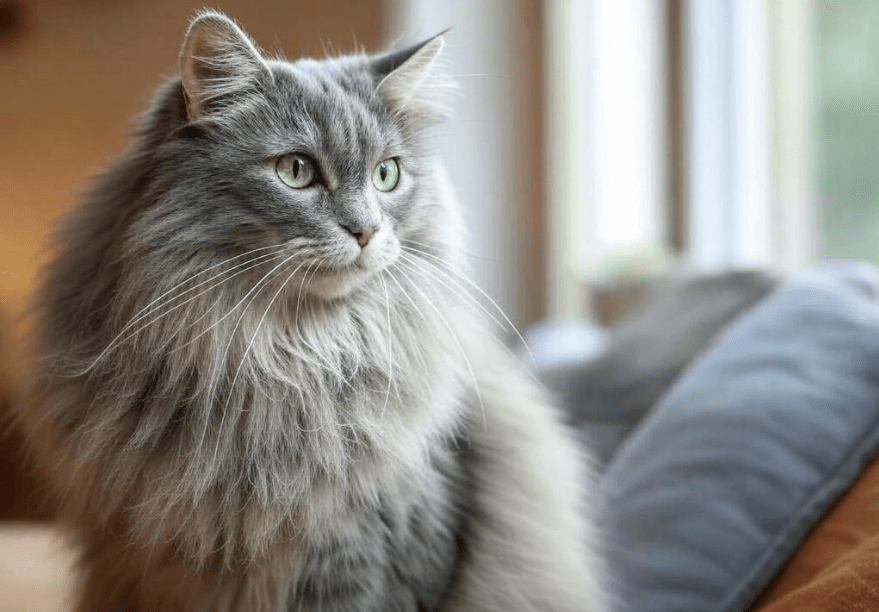
1. Observe and Document Symptoms
Start by tracking your Maine Coon’s behavior to identify patterns and triggers.
Keep a Journal: Note when the behavior occurs, its frequency, and any associated events (e.g., new food, visitors). Include details like eating habits, litter box use, and energy levels.
Monitor Duration: Temporary changes (e.g., a day of hiding after a loud noise) may resolve on their own, but persistent changes warrant further investigation.
Check for Physical Signs: Look for weight loss, fur changes, or skin issues that may indicate health problems.
2. Visit a Veterinarian
A vet visit is essential to rule out medical causes, especially for sudden or severe behavior changes.
Physical Exam: Your vet will check for pain, infections, or systemic issues.
Diagnostic Tests: Blood work, urinalysis, or imaging may be needed to diagnose conditions like hyperthyroidism or arthritis.
Dental Check: Dental disease is common in Maine Coons and can cause irritability or appetite changes.
Parasite Screening: Ensure your cat is free of fleas, mites, or worms.
Pro Tip: Bring your behavior journal to the vet to provide a complete picture of your cat’s symptoms.
3. Optimize the Environment
Creating a stable, enriching environment can reduce stress and improve your Maine Coon’s behavior.
Maintain Routine: Stick to consistent feeding, play, and litter box cleaning schedules to provide predictability.
Provide Enrichment: Offer interactive toys, puzzle feeders, and climbing structures to keep your Maine Coon mentally stimulated. Maine Coons love vertical spaces, so consider a tall cat tree.
Ensure Resource Access: In multi-pet homes, provide multiple litter boxes, water bowls, and resting spots to prevent competition.
Create Safe Spaces: Set up quiet areas with cozy beds or hiding spots where your cat can retreat if stressed.
4. Address Litter Box Issues
Litter box problems are a common behavior change in Maine Coons and often have simple fixes.
Keep It Clean: Scoop daily and fully clean the box weekly.
Choose the Right Box: Maine Coons need large, open litter boxes due to their size. Covered boxes may feel cramped.
Use Preferred Litter: Stick to unscented, clumping litter, as Maine Coons may reject strongly scented or coarse litters.
Check Location: Place the box in a quiet, accessible area away from food and water.
5. Manage Stress and Anxiety
Reducing stress can help normalize your Maine Coon’s behavior.
Use Pheromone Diffusers: Products like Feliway mimic calming cat pheromones, reducing anxiety.
Minimize Disruptions: Introduce changes (e.g., new furniture, pets) gradually to avoid overwhelming your cat.
Spend Quality Time: Engage in daily play sessions and gentle petting to strengthen your bond and reduce anxiety.
Consider Calming Supplements: Consult your vet about natural supplements like L-theanine or CBD for cats to ease stress.
6. Support Senior Maine Coons
Older Maine Coons may experience behavior changes due to aging or cognitive decline. Tailor their care to their needs.
Ease Mobility: Provide ramps or low-entry litter boxes for cats with arthritis or reduced mobility.
Adjust Diet: Senior-specific foods can support joint health and digestion.
Monitor Cognitive Health: Watch for signs of feline cognitive dysfunction, like disorientation or vocalizing at night, and discuss treatments with your vet.
7. Seek Behavioral Support
If behavior changes persist despite medical and environmental adjustments, consult a feline behaviorist.
Behavioral Assessment: A professional can identify subtle triggers and recommend tailored solutions.
Training Techniques: Positive reinforcement can help redirect unwanted behaviors, like scratching furniture.
Medication: In severe cases, your vet may prescribe anti-anxiety or antidepressant medications.
Preventive Tips for Stable Maine Coon Behavior
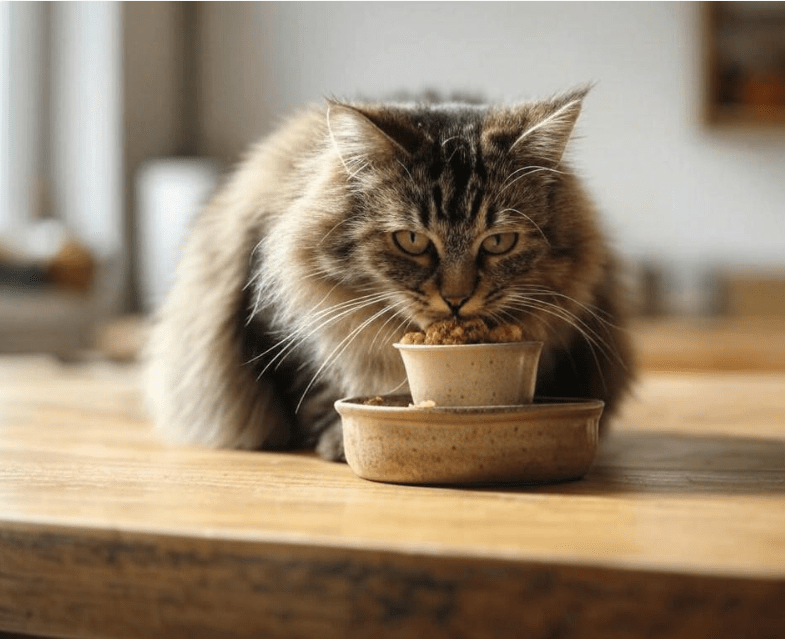
Preventing behavior changes starts with proactive care and attention to your Maine Coon’s needs.
Regular Vet Checkups: Schedule annual or biannual exams to catch health issues early.
Consistent Environment: Avoid frequent changes to your cat’s routine or surroundings.
Mental Stimulation: Rotate toys and introduce new activities to keep your Maine Coon engaged.
Social Interaction: Spend time daily with your cat to build trust and monitor their mood.
Common Mistakes to Avoid
When addressing Maine Coon behavior changes, steer clear of these pitfalls:
Ignoring Symptoms: Small changes can escalate if left unaddressed.
Punishing Bad Behavior: Yelling or scolding can increase stress and worsen behaviors.
Delaying Vet Care: Health issues often underlie behavior changes and require prompt attention.
Overlooking Stressors: Subtle environmental changes, like a new scent, can affect sensitive Maine Coons.
When to Seek Immediate Veterinary Attention
Some behavior changes signal emergencies that require urgent care:
Sudden Aggression: May indicate severe pain or neurological issues.
Refusal to Eat or Drink: Can lead to dehydration or liver issues within 24–48 hours.
Lethargy with Vomiting or Diarrhea: May suggest a serious infection or obstruction.
Seizures or Disorientation: Requires immediate neurological evaluation.
Conclusion
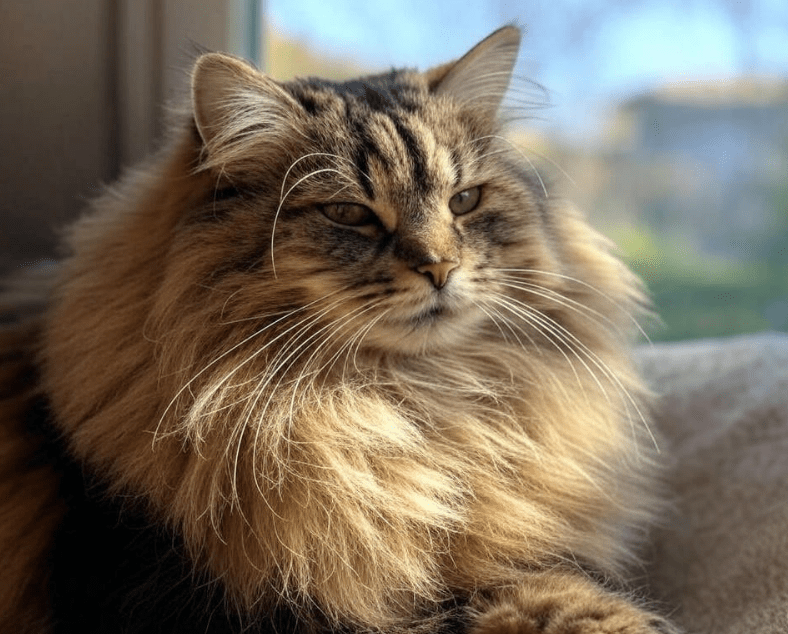
Maine Coon behavior changes can be unsettling, but with careful observation, environmental adjustments, and veterinary support, you can uncover the cause and restore your cat’s well-being. By addressing health issues, reducing stress, and providing an enriching environment, you’ll help your Maine Coon thrive as the loving, playful companion they’re known to be. If changes persist or worsen, don’t hesitate to seek professional advice to ensure your feline friend stays happy and healthy for years to come.

